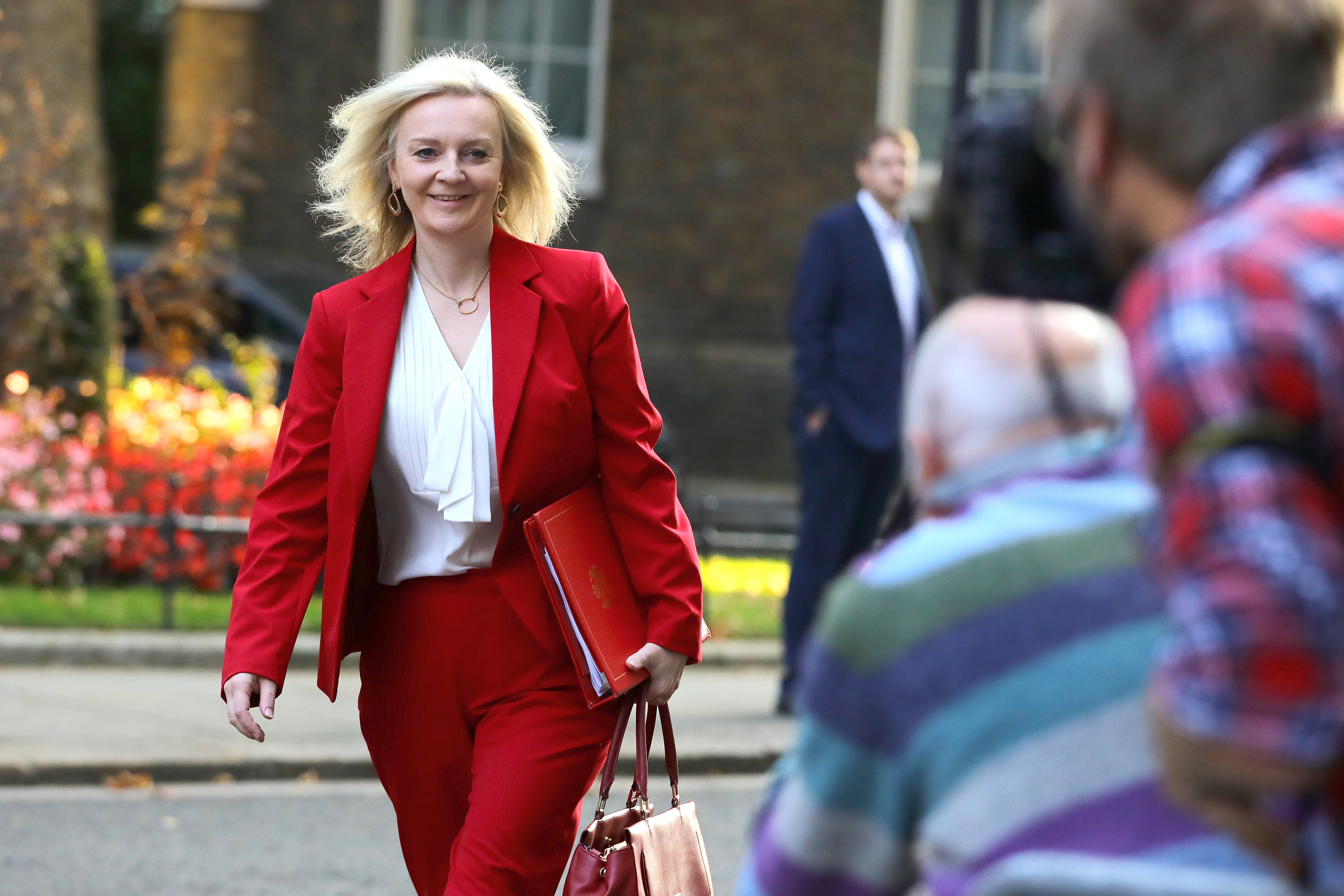Liz Truss: UK needs to forge closer economic ties with Asia
The Trade Secretary will set out how the country must change its approach as trade moves away from Europe.

Your support helps us to tell the story
From reproductive rights to climate change to Big Tech, The Independent is on the ground when the story is developing. Whether it's investigating the financials of Elon Musk's pro-Trump PAC or producing our latest documentary, 'The A Word', which shines a light on the American women fighting for reproductive rights, we know how important it is to parse out the facts from the messaging.
At such a critical moment in US history, we need reporters on the ground. Your donation allows us to keep sending journalists to speak to both sides of the story.
The Independent is trusted by Americans across the entire political spectrum. And unlike many other quality news outlets, we choose not to lock Americans out of our reporting and analysis with paywalls. We believe quality journalism should be available to everyone, paid for by those who can afford it.
Your support makes all the difference.The UK will need to “forge closer economic ties” with Asian nations as global trade shifts east, the International Trade Secretary is expected to say.
Liz Truss is due to use a speech on Tuesday to set out how the UK’s post-Brexit trade strategy will be increasingly about attempting to secure business with eastern growth markets in India and elsewhere.
The Department for International Trade’s (DIT’s) Global Trade Outlook report, due to be published on Tuesday, has found that the “centre of global economic gravity is moving away from Europe” and heading towards the Indo-Pacific.
In order to seize the opportunities of the future, we need to grow trade with the fastest-growing parts of the world
By 2030, three of the four largest economies in the world will be in the Indo-Pacific region, the report forecasts, with the region set to account for 56% of global GDP growth and 44% of global import demand growth over the next 30 years.
Alongside that, global demand for British digital and financial services is expected to double in the next decade, with demand for digital services calculated to grow by 117%, the department said.
Speaking ahead of her address to the Policy Exchange think tank, Ms Truss said: “In order to seize the opportunities of the future, we need to grow trade with the fastest-growing parts of the world while turbocharging digital and services commerce – which is exactly what we’re doing.
“We are building a global network of next generation trade deals that are advanced in services and digital trade, and forge closer economic ties with markets in east Asia and the Asia-Pacific.
“We know the demand for high-quality British goods and services exists, and is growing, therefore we need to ready British businesses for export and bolster inward investment across the country; creating new jobs, business and growth.”
In its integrated review of security and foreign policy published earlier this year, the Government outlined plans for a “tilt” in focus towards the Indo-Pacific, an approach the Trade Secretary wants to emulate through trade.
The Cabinet minister, according to the DIT, will say it is time to “move from defence to offence in trade” and will set out plans for targeting trade deals with the fastest-growing parts of the global economy.
The Conservative MP is planning to say “the status quo is not an option” and outline how her trade policy will open new trade routes beyond Europe with Britain in control of its trade policy and free to strike new trade agreements since leaving the European Union in 2020.
Officials said the UK was already making “significant headway” in building more successful trade routes with growth economies in the Indo-Pacific.
The UK has started negotiations to join one of the world’s largest free trade areas, the Comprehensive and Progressive Agreement for Trans-Pacific Partnership (CPTPP) – which includes the likes of Japan, Australia and Singapore – and is due to shortly “kick-start” negotiations with India, Mexico and Canada, Whitehall officials said.
With just one in 10 British firms currently selling overseas, Ms Truss will encourage more businesses to sell abroad in order to make exporting the “norm for UK businesses”.
“The path to economic revival does not lie in retreating and retrenching,” she is set to say.
Shadow trade secretary Emily Thornberry said: “Liz Truss has been in her job two years and two months, and still hasn’t delivered a single trade deal that we didn’t already have inside the EU, so it’s time she stopped making the same speech about the prospect of new trade agreements, and actually got one completed.
“Even more importantly, she has still not addressed the fundamental problem with her strategy, which is that the deals she is discussing don’t come anywhere close to making up for the losses British businesses are facing because of the holes in the Government’s deal with Europe.
“Even her top priority of accession to the Trans-Pacific Partnership is forecast by her department to deliver UK export growth of just £1.7 billion over 15 years, a third of what we exported to Luxembourg in a Covid-affected 2020.
“For that to be Liz Truss’s top priority shows a serious lack of ambition for British exports.”